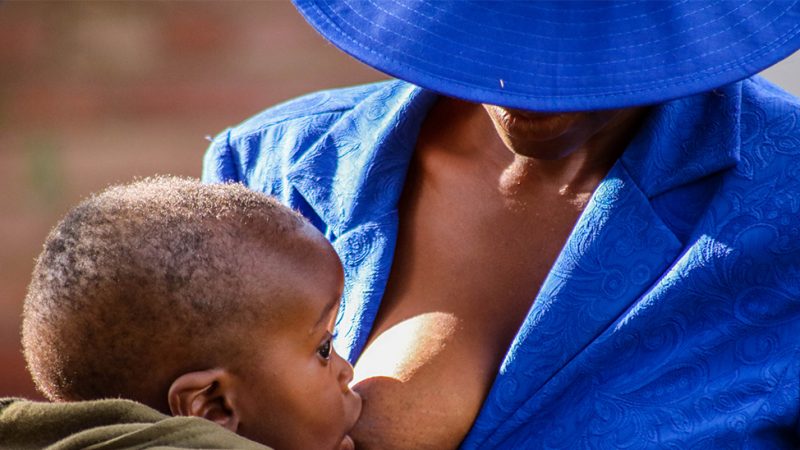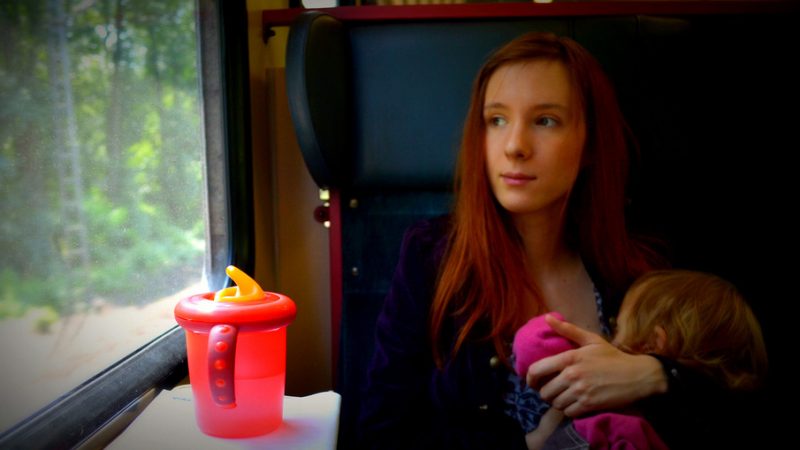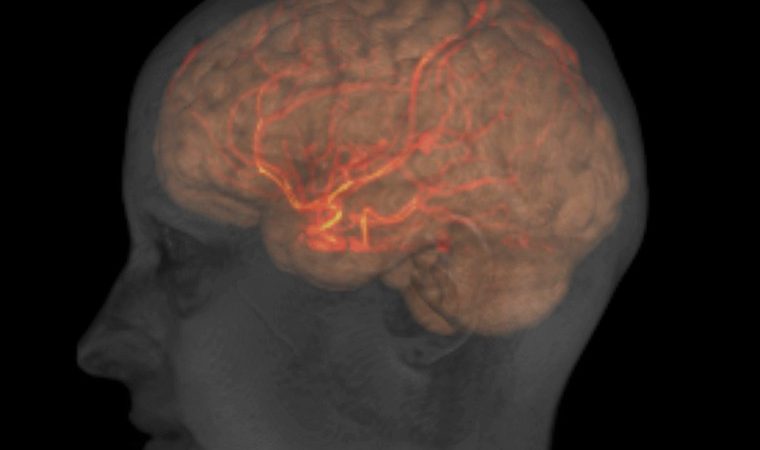
Breastfeeding – a bigger picture: A Q&A with Dr Karleen Gribble
Photo permission kindly given by WRA Zimbabwe via Flickr Creative Commons license 2.0.
We were delighted this week to host Dr Karleen Gribble for a breastfeeding Q&A. Karleen has been researching women’s infant feeding practice and beliefs for over a decade. Her research interests include adoptive breastfeeding, long-term breastfeeding, child protection and breastfeeding, peer-to-peer milk sharing and the parenting and care of maltreated children.
Karleen is Adjunct Associate Professor at the School of Nursing and Midwifery, Western Sydney University and a member of the Infant and Young Child Feeding in Emergencies Core Group. She is active in research, policy development, advocacy and training in the areas of infant feeding in emergencies and the marketing of infant formula. She is also an Australian Breastfeeding Association Community Educator and Breastfeeding Counsellor.
On this page:
Why should we ask children what they think about breastfeeding?
Breastfeeding adopted children
Cultural barriers to breastfeeding in the UK
Natural Term Feeding
Q: We’ve really enjoyed reading your article on long-term breastfeeding, as we have found so few studies that look into it in detail. What level of importance do you attach to breast feeding beyond 2 years and why?
Karleen: I think it very much depends on the individual child and mother. For some children it is clearly extremely important, others not as much. And the importance is around the emotional impact primarily.
PSG A: I think I am right in thinking that your research has focused on the emotional impact, but do you think that there are nutritional benefits as well in typical situations, or are these insignificant?
Karleen: I think again it depends on the situation. How much milk is the child actually drinking (could be a token amount to hundreds of milliletres)? What sort of food does the child have access to and how much do they eat? What is the environment in which they are living in terms of exposure to infectious disease? Etc. There is not much formal research into the impact of breastfeeding beyond a year on health and that that exists is mostly in developing country context.
PSG A: Why do think that is?! Is it just because there are so few mothers who continue to breastfeed or for some other reason? It seems that there is so much attention paid to the health of young children that this is an obvious factor that is being overlooked!
Karleen: I think it is because there are fewer children to study but also because the need for breast milk is greater the younger the child.
What should we ask children what they think about breastfeeding?
Q: Karleen, I think a lot of us found it really inspiring to read your study into what breastfed children think about breastfeeding: as good as chocolate’and ‘better than ice cream’. It seems so obvious their voices should be heard – and yet not something I’d considered at all until reading your study.
Do you think it’s important that children’s voices are heard when studying breastfeeding and if so why?
Karleen: I think children’s voices are so valuable because so often it is assumed that it is mothers who drive breastfeeding when really it’s a cooperative activity.
PSG B: Has there been any research on the behaviour of older but pre-verbal children that might indicate their attitudes? I’m thinking of things such as whether BM is sought out primarily when in need of comfort, or hunger….. I guess that there are a larger number of kids between the ages of 12 and 18 months who may not be verbal yet, but are very much leading their BF journey.
Karleen: There has been very little. This would be something that would be very worthwhile to do. Mothers could do this via a diary – just noting what was happening around the time when a child fed.
PSG H: I’d love to see that done! I don’t like the narrative that “breastfeeding an older child is for the mother, not the child” that you hear sometimes, and it would be lovely to have evidence to back up that not being the case.
Karleen: I think it would be very doable.
Q: One of our breastfeeding groups have been wondering if we might be able to include children’s voices as part of our research project. Do you have any tips on collecting data from children on their thoughts on breastfeeding?
Karleen: I think that those closest to children are best placed to collect data, especially the very young. For older kids, things like drawing can also be used (I haven’t done this myself but some other researchers have).
PSG A: Has your research in collecting the views of children resulted in anything that surprised you?
Karleen: I don’t know if any of it was particularly surprising but there were certainly many interesting things. One of the these was that many children had real difficulty imagining a time when they wouldn’t be breastfeeding. So asking them about when they would stop yielded information that wasn’t all that useful in terms of giving an indication when they might stop but reflected their developmental stage.
Weaning
Q: Do you think the importance of breastfeeding to the child could be a determinant of weaning age (referring to your earlier comment about how the importance can vary among children)? Is this something that has been studied?
Anecdotally, children seem to have different ‘feeding personalities’ – weaning earlier than their mothers wanted in some cases, and feeding many times a day for several years in others and I wonder if this is linked to the importance the child places on breastfeeding.
Karleen: Yes, I think it does. If children use breastfeeding as an attachment behaviour (ie to seek comfort) then they are more likely to continue for longer. If they have something in their lives that is stressful for them then they will continue for longer. And personality is a very important factor.
PSG O: I can imagine that the more a mother ‘mothers through breastfeeding’ e.g. soothing to sleep, comfort after a bump etc., the stronger the association is and the longer a child may continue.
Karleen: Yes.
Q: I’m wondering about how breastfeeding ends in long-term relationships. The people I’ve interacted with personally have stopped either due to forced separation (mother or child hospitalisation), during a subsequent pregnancy, or birth of a sibling. How often does ‘something’ happen, versus the child just stopping? And how does ‘just stopping’ happen?
Karleen: I don’t think we really know the answer to this question. Sometimes it can be a combination – so something that might be a catalyst for weaning now (say the mum going away for a night) might not have been a month ago.
PSG H: Ah, that’s interesting. And makes me think of a follow-up (which I’m guessing maybe hasn’t yet been studied, but I’ll ask anyway); is there an age where cessation is maybe more easily triggered? My friends who had forced separations ending in weaning all had them just after two years old. I also remember when I went away for 3 days, just past my daughter’s 2nd birthday, she seemed really hesitant to breastfeed again. I sort of felt like I could have stopped it there if I had wanted to, without much fuss. But 9 months later, after a similar separation, there was no such hesitancy.
Karleen: I think in general the older the child the more likely that a trigger will result in weaning.
Nursing Aversion
Q: Do you know of any research into nursing aversion? Do we know why is happens? Is it possible to cure (for want of a better word)?
I’ve only recently got over a 6-month stint of nursing aversion towards my eldest, so it’s a topic close to my heart.
Karleen: Ah, interesting. I am not aware of any research that has been done. I think it’s one of those things where mothers actually know a LOT and the mother-to-mother support organisations are a good source of info.
PSG M: That’s a shame. Hopefully someone will research it. It seems that everyone agrees that it’s horrible and no-one knows what to do other than sympathise.
PSG E: I agree I’ve had 2 bouts of nursing aversion in the 20 months I’ve breastfed for. I’ve noticed there’s a link between pregnancy and nursing aversion but I’ve not been pregnant either time, so it would be interesting to know why it happens under those circumstances too
Karleen: Well, gentle persistence often gets there. Were you able to identify anything that was a trigger for your baby?
PSG B: I wonder if it has anything to do with maternal nutrition, hydration and health. I get aversion when I’m dehydrated and obviously it’s common in early pregnancy when women’s bodies are busy. I have often wondered why some women get it and others don’t.
PSG N: I had horrific nursing aversion in the second trimester of my second pregnancy. My little girl was around 18 months and I really struggled. But we kept going somehow until my son was born when she gave up feeding 🙁
Karleen: Yes, pregnancy is a very common time for children to stop breastfeeding. From memory, about 1/4 of the children in my long-term breastfeeding study had stopped breastfeeding at some time and then restarted (obviously not all do, but many do).
PSG A: That’s such an unreported fact! I’m pretty sure that the majority of BFers assume that BFing will be continuous.
PSG N: Interesting. My second stopped feeding at just ten months he’s two now and is always trying to grab my boob and feed when I’m feeding my youngest. There was around ten months between him stopping feeding and the new baby arriving. I thought he may have forgotten how to latch so I haven’t encouraged him at all. I don’t push him away but I change it into a cuddle instead.
Might he remember how to feed if I let him? Smallest baby is just 4 months so I imagine supply is established but would easily adapt if required.
Karleen: He may. He may try and it not work and he may need to try a few times before he gets the hang of it again. We see this happen with adopted children.
PSG N: Ah I’ll let him try next time and see how he does. We kind of struggled to bond since he stopped feeding. It would be lovely to be able to have quiet time with him, he’s a live wire and always up to mischief so a breastfeed may help calm him too!
Karleen: You haven’t anything to lose. He may just hold the breast in his mouth which is fine, it may take a few times before he gets the hang.
Breastfeeding adopted children
Q: I’m really interested in your work with adopted children. Does your research suggest an age range within which a child is likely to re-establish BFing (though I assume the range also varies with age)?
Karleen: What appears to be the case is that young babies who have been well cared for are fairly likely to transition reasonably easy to breastfeeding but older babies and those who have not been well cared for need more time and to develop the relationship with their mother before they can contemplate breastfeeding
PSG B: This warms my heart! The thought of someone adopting a child and doing so with so much love and dedication that they want to be able to feed them.
Is there much support out there for adoptive mothers to establish feeding?
Karleen: Definitely not!
PSG A: Does your research suggest that a baby needs to have been breastfed initially by their biological mother in order to BF with an adoptive mother, or can this be an entirely new activity on adoption?
Karleen: Often the children have seemingly not ever breastfed. And it is relatively common for children to be the ones to seek breastfeeding
PSG H: Really interesting!
Karleen: Here’s the paper on it.
Cultural barriers to breastfeeding in the UK
Q: What do you think the cultural barriers are to BFing older children in the UK? We have seen the recent statistics that other European countries such as Germany are doing significantly better at feeding rates after age 1.
Could NHS staff and public health bodies do more or does it go beyond that?
Karleen: Yes, indeed they could. There is often an unwillingness on behalf of health workers to say anything about long-term breastfeeding because they are frightened of shocking people. But that shock is often the first step for people in considering continuing breastfeeding themselves.
PSG E: I’ve found a lot of people say things like the WHO recommendations are only for developing countries and don’t apply in the developed countries as we have better sanitation and access to healthcare/nutrition etc.
Do you think that this attitude also has something to do with why women don’t think it’s “normal” to breastfeed long term?
The NHS changed their website in February with regard to breastfeeding, it used to explicitly quote the WHO guidelines but it’s been replaced with something that isn’t quite so clear. Do you think it would give the WHO guidelines more oomph if healthcare providers such as the NHS were more specific?
PSG B: I have to admit my attitude has changed significantly. I think I have never really been aware of what poor rates we have in the UK and BF was always what I was going to do but I had no idea about weaning ages and about continued benefits after 1. I (embarrassingly) thought women nursing older babies was a bit odd. I feel we are in a vicious circle of poor acceptance and support here and the UK and I wonder what can be done to tackle it? I also wonder what research is out there that can guide tackling the approach to supporting women and changing attitudes?
Even my son’s dietitian pushed formula (when we have no weight problems) saying that there was no evidence of benefits after 6 months…. she picked the wrong person to say this to, but it shows how big the issue is.
Karleen: The WHO recommendations are very helpful to lots of women, they are used to defend themselves against those who say they are doing something bad by continuing to breastfeed. I think it would be helpful if they were more widely shared by health professionals.
PSG F: It seems absurd that health care providers would disregard them at all!
Karleen: Yes, but health professionals are also a product of the culture and of their own personal experience.
PSG G: HCPs are only human like the rest of us, and susceptible to formula marketing lies and general misinformation too. Unless they’ve had a personal interest in breastfeeding they’re unlikely to have much knowledge at all unfortunately, in my experience anyway
PSG B: I think if your role is to do with infant feeding, you should be providing best-practice advice. This includes dietitians, HV and midwives. On support pages you see formula being advised frequently when issues appear to be fairly normal and poorly explored in my humble opinion. Even HCPs are susceptible to marketing. What can we do to bring more balance and affect public opinion when formula feeding is so ingrained as the new norm?
What’s in breastmilk?
Q: Karleen, I loved your “Better than ice cream” study – it made me cry!
In our PSG group we are thinking about looking at the constituents of breast milk produced for toddlers. If you were doing this experiment, what would you look at? Many of us don’t know enough about what’s in breast milk but we’d like to know more than just, for example, a foremilk/”cream” ratio.
Karleen: Oh that’s lovely! I haven’t looked at the research on milk composition for quite some time but it was my understanding that this has been looked at- at least up to past a year. What is the aspect of milk composition that you were interested in?
PSG A: The composition of breast milk for older children in comparison to younger children. (We haven’t got as far as agreeing exactly what to test for). We hear people say that there’s “no nutritional content in milk for older children, it’s just for comfort” a lot! But there’s no research on it at all as far as we can see. We’d like to be able to say what is in it.
We’re also interested in microbes, antibodies, you name it we’re interested in it! But we’ll likely have to make some choices when it comes to testing (if we go with this question).
What would you choose to test for?
Karleen: My feeling is that it is likely that, after a certain time, the age of the child won’t be relevant, rather it will be the frequency of feeding, rate of milk removal, volume of milk produced etc that will be the most important. If you’re wanting to counter the “no nutritional value” thing then I would think that it would be stuff like protein, carbohydrate, fat that you would test for.
PSG B: Yes. My dietitian said that breast milk did not have any greater nutritional benefit than formula. So I would want to know if there was all the extra stuff you get at the start…. probiotics, immune factors, hormones etc. But also if the composition of the nutritional content changes too. It would be interesting if it depends on the volume extracted. That makes sense… the more they are needing to take the more dependent they are on it and the more nutritionally dense? Really interesting!
PSG C: Gang -that’s something we haven’t discussed at all! We should do so tomorrow………
PSG D: That’s why a longitudinal study is needed!
PSG A: That’s a really interesting hypothesis, we’ll add it to our collection if that’s OK with you?!
I think we would happy if we could prove it has value to the child. I don’t know if nutrition is our primary concern necessarily – different people in the group have different interests, no idea at this point which will “win”.
Infant feeding in emergencies
Q: Could we hear a bit about your work on infant feeding in emergencies?
Karleen: Sure, I’m just doing a study at the moment looking at the experiences of those who have volunteered in the European Refugee Crisis helping mothers/caregivers with feeding their babies. Midwives, LLLL, breastfeeding counsellors with usually no previous emergency experience
PSG H: Oo yes – I’m working my way through the Politics of Breastfeeding and am enjoying how it’s changing my thoughts. I realised I was used to seeing milk powder in aid packages and didn’t question it.
PSG K: This really interests me. Although our part of the UK is not prone to emergencies, the things I have been reading about Hurricane Katrina and other natural disasters makes me realise that our little peer supporter network would be well placed to spend even a little while considering how we could contribute in the case of a local emergency. Is there anything we should be reading?
Karleen: What I’ve found is that breastfeeding counselling skills are very easily transferred to the emergency context- there really isn’t any difference in terms of talking to mums.
Peer-to-peer milk sharing
Q: Karleen, could you tell us a bit about your research into milk sharing? Did you research that in Australia or internationally?
Social media is making it possible in a way it just wasn’t before in the UK – does the same happen in Australia?
Karleen: Internationally. So I had participants from the UK as well as some other European countries, Australia, NZ, US, Canada and Malaysia. Yes, the use of social media has made it much easier for those who don’t happen to know someone who wants and need milk or wants to donate to find someone
PSG K: Did the attitudes of health care workers towards peer sharing of BM differ by country? The UK has such an anti-breastfeeding culture I can imagine some might be very anti peer to peer sharing?
Karleen: There are people anti everywhere. Interestingly, some of the most anti people are milk banking supporters – especially in the US.
PSG L: It’s interesting to hear that – in the UK milk banking staff are not anti-milk sharing, but are concerned about potential safety issues and are keen to work out ways to make it a safer process. I think it would be wrong to characterise that as ‘anti’.
Karleen: I’ve not seen much from the UK on this. When I say anti there are those who have compared using shared milk to playing Russian roulette or to unscreened blood transfusions. It can get quite extreme.
I think it’s partially because of the environment within which they work and the nature of the babies they serve. They don’t necessarily appreciate that the context of milk sharing is very different.
PSG A: We tend to assume that people using milk donor services are doing so because they are unable to feed their child themselves, but do you know of instances where mothers are specifically looking for a varied source of milk, for example to provide a wider range of nutrients or antibodies?
Karleen: No, I haven’t come across this. In my milk sharing research those who sourced milk were often in quite dire situations.
Q: When people peer-share, what are the risks?
Karleen: There are risks of disease transmission, that the milk may not be human, that the milk might be spoilt, that the donor or recipient might be a nasty person who causes trouble for their milk sharing partner….
PSG B: I guess it’s not well controlled. What is your take on the benefit v risk with peer sharing.
Karleen: No, not well controlled. It’s based on interpersonal relationships rather than external regulation. I think the risk-benefit calculation is one that every individual does differently. We all have our own perceptions of what is risky and what is not (and they are not necessarily related to actual level of risk).
PSG G: How high are the risks of disease transmission? What kinds of diseases would be the highest risk – both in terms of the severity if infection was passed on (even if the chance was slight) and also things that are perhaps less severe but a high likelihood of transmission raises the risk?
Karleen: Risk depends on the context. CMV (Cytomegalovirus) is easily transmitted but loads of mothers have CMV themselves.
HTLV (human T-lymphotropic virus) is transmitted but that’s very low prevalence in most countries (or more common in specific pop groups).
HIV can be transmitted but not easily. This is the one that most worry about and it’s very context dependent – just compare the risk in S. Africa where up to 30% of pregnant women are HIV positive, to Australia where less than 1 baby a year of an Australian-born mother is exposed to HIV perinatally and HIV testing is routine in pregnancy.
Breastfeeding research
Q: Where do you think the gaps in research are in relation to breastfeeding?
If I could wave a magic wand and get some research underway tomorrow into anything to do with breastfeeding, what do you wish it could be?
Karleen: Oh gosh, there’s so much to be done! I think that we really need more qualitative research, understanding how to help mothers overcome the barriers that they face in breastfeeding their babies and how to better support them.
PSG A: I’m guessing that it is important to have a range of different types of support, but if you had to put funding into one type, which would you chose and why?
Karleen: I think, in the UK context, I would look at the positive social deviants. The women who continued breastfeeding despite being in a demographic and situation where it would normally be expected that they would not breastfeed or not breastfeed for longer to look for what made the difference for them.
PSG J: Your question got me thinking about how I was able to feed in public. I’m not a confrontational person and not that confident. I was really nervous the first few times feeding in public but there was no way I could ignore my babies cries for milk. But following this theory feels unfair since it would imply that some mothers are more at ease with hearing their babies cry and can therefore make them wait to feed. Maybe I have a confidence in mothering that I don’t have in other areas of my life (I will tend to my baby no matter what the rest of the world thinks type of attitude.) Or are some women just more used to hearing children cry, such as women who work in childcare. This is not including women who choose to pump for days out. I’m thinking more of a scenario where you get caught out by your lo at the supermarket or in town. I do also believe that support from your partner and friends is very important. I have a few friends supportive of breastfeeding and lots of Facebook groups. And my other half is amazing. I suppose this type of support would be encouraged through education so that more people understand breastfeeding. This would limit the offers of bad advice or making the mother feel uncomfortable because of their personal insecurities.
More Information
The abstracts for Karleen’s papers can be found here:
Gribble, Karleen D. Long-term breastfeeding; changing attitudes and overcoming challenges. Breastfeeding Review 16.1 (2008): 5.
Gribble, Karleen D. ‘As good as chocolate’and ‘better than ice cream’: how toddler, and older, breastfeeders experience breastfeeding. Early child development and care 179.8 (2009): 1067-1082.
Gribbel Karleen D. Post-Institutionalized Adopted Children Who Seek Breastfeeding from their New Mothers The Journal of Prenatal and Perinatal Psychology and Health 19 3 (2005): 217
Breastfeeding Q&As
What’s in Breast Milk? – Dr Natalie Shenker
Breastfeeding – changing the conversation. – Heather Trickey
Want to join in?
If you’re already a member of the online group Breastfeeding Older Babies and Beyond, you can join here.
If you’re already a member of the online group UK Breastfeeding and Parenting Support, you can join here.
Want to take part as one of the 2018 Parenting Science Gangs? Register your interest here.



